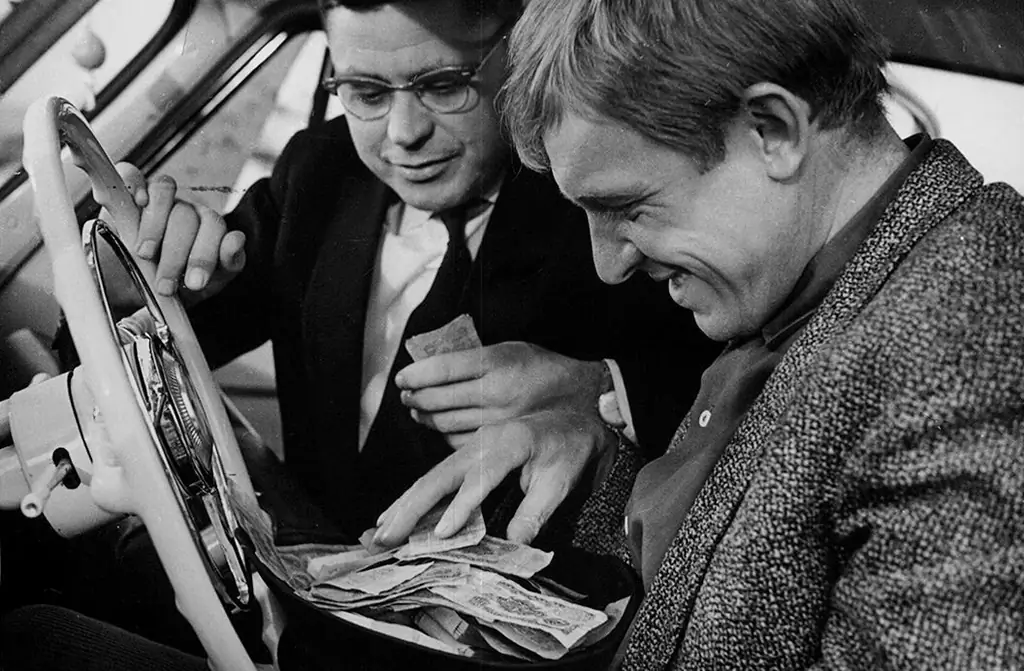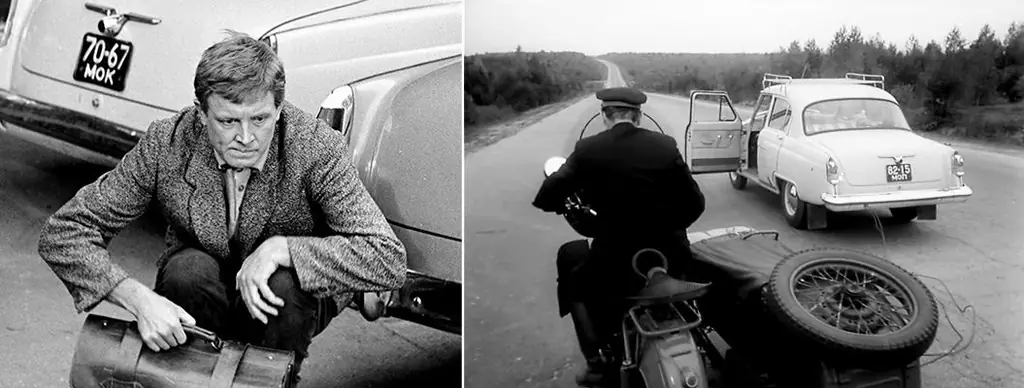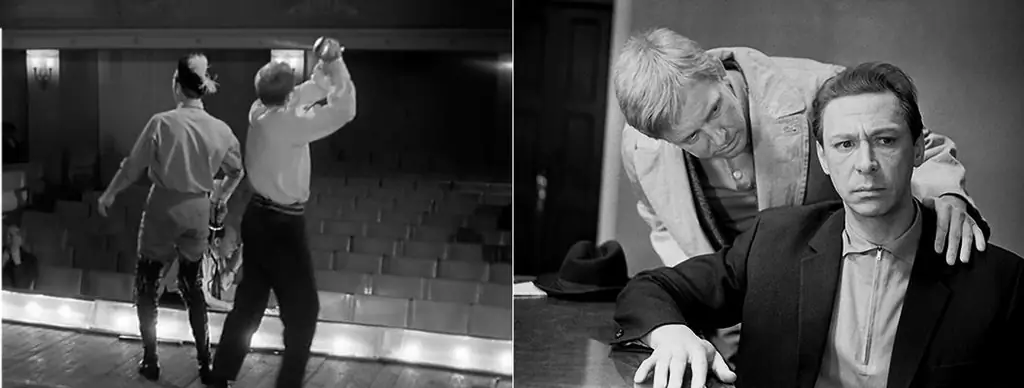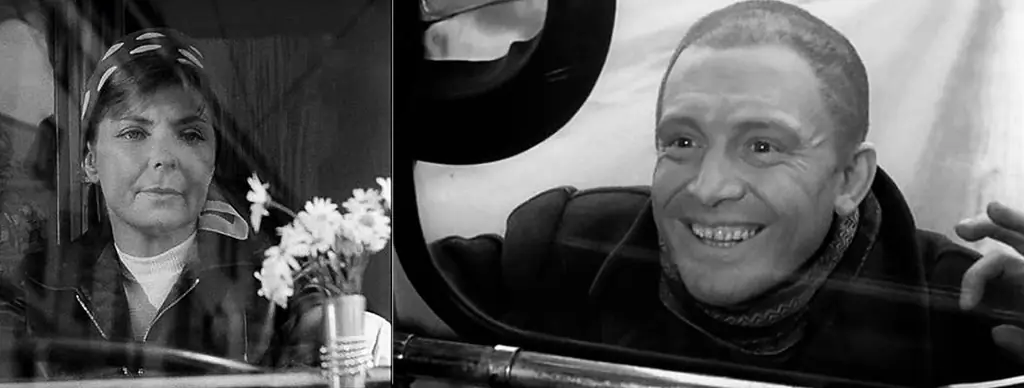- Author Adrian Jeff jeff@psychologosportal.com.
- Public 2023-12-17 05:06.
- Last modified 2025-01-24 14:09.

Beware of the car, or psychoanalysis of the people's love for theft
It is clear that helping people is good. But what if this help is illegal or at someone else's expense? For some reason, only Russian people begin to doubt: who is this person - an ordinary thief or a noble ruler of justice?
We all remember the film "Beware of the Car" and its main character - the insurer Yuri Detochkin. In his spare time from work, Detochkin stole cars from people who "lived beyond their means", sold them, and transferred all the money to orphanages. He sincerely believed that his actions help justice and restore the balance of justice, because he stole cars from crooks, thieves and speculators.
The story of the film's plot is very remarkable: it was based on the legend of the "Soviet Robin Hood", which was passed from mouth to mouth in different cities, but had no real prototype. Thus, the people themselves, through oral creativity, expressed their attitude to the social distortions that appeared in Soviet society in those years.
Taking this folk legend as the basis of the plot, the director Eldar Ryazanov and the screenwriter Emil Braginsky responded with the help of the art of cinema to the demand of the people, their innermost aspirations. This film, on the one hand, had a psychotherapeutic effect - it inspired hope for the restoration of shaken social justice: bribe-takers and plunderers of socialist property must be punished!
On the other hand, the plot also had pitfalls. It was not without reason that the script was initially rejected by the State Film Agency "out of fear that Soviet citizens, after watching the film, would start stealing cars from each other." And these were real, not far-fetched fears, because in those years the art of cinema had a huge impact on people, being the embodiment of Soviet ideology, offering illustrative examples for both popular imitation and general condemnation.
It is clear that helping people is good. But what if this help is illegal or at someone else's expense? For some reason, only Russian people begin to doubt: who is this person - an ordinary thief or a noble ruler of justice? The training "System-vector psychology" by Yuri Burlan will help us to reveal this contradiction and put everything in its place.

Freedom to Yuri Detochkin
So that the main character does not become an example to follow, the authors of the film do not leave hopes for a pardon for him: Detochkin is condemned and sent to prison. This end of the film seems to say: the law must be observed. But the articles of the criminal code do not always coincide with the dictates of our mysterious Russian soul.
With our heads we understand that the plot of the film is ambiguous, but at the same time we sympathize with Detochkin with all our hearts. We even close our eyes to the fact that the last victim of the hijacking is not a speculator, but a professor, a respected person. Although this was a directorial, perhaps unconscious allusion to the true state of affairs. Watching the film more than once, every time we want Detochkin to remain invulnerable and never be caught. Not hearing the voice of reason, we hope that he will be acquitted and not sent to prison, but released in peace, with a fatherly scolding. Investigator Maxim Podberezovikov, his main opponent, also justifies him in his heart with us. And the people in the courtroom are shouting: "Freedom to Yuri Detochkin!"
Logic dictates that if everyone, like Detochkin, begins to administer justice according to his own understanding, it will destroy society. The actions of the protagonist of the film "Beware of the Car" are just an imitation of justice and, even worse, a complete justification of lawlessness. But we continue to sympathize with Yuri Detochkin, seeing in him … ourselves.
The mystery of the Russian soul
Our attitude to the film "Beware of the Car" and its main character is clearly explained by the system-vector psychology. If a Western man had watched this film, he would never have doubted: according to the law, a thief, a robber, a robber must be caught and punished, his attempt to break the law has no justification. Therefore, Detochkin's place is in prison - he must be responsible for illegal actions. After all, by breaking the law, he damages the entire society.

Is it logical? However, the Russian people have been completely illogical for more than half a century to continue again and again to justify a kind of "justice" and "charity" of the hero of the film "Beware of the Car". System-vector psychology fully reveals this amazing difference in the perception of the same events and phenomena. The main reason is the fundamental difference between domestic and Western mentality.
In the West, with its skin-like mentality, law and order flourish. We, in Russia, have an urethral-muscular mentality, in which justice and mercy are more important categories, and in the hierarchy of values they are above the skin law. Therefore, we and the inhabitants of the Western countries (Europe and the USA) will never understand each other until we realize the difference between us with the help of systems thinking.
Who is doing charity work
What is true charity, which means helping those who need it? Sincere sympathy for people, caring for others, selfless help to those in need, volunteering are primarily characteristic of people with a developed visual vector. In the possessors of the visual vector in a developed and realized state, we can observe an active involvement in the life of other people and a respectful attitude towards human life as the highest value.
Today, such developed visual people are before our eyes. These are actresses Chulpan Khamatova and Dina Korzun with their “Give Life!” Foundation, model Natalya Vodianova and her Naked Heart Foundation for Children, Konstantin Khabensky, Olga Budina and many others. The help of these people is invaluable: they not only help to solve the problems of specific people, but instill in our hearts hope, faith in goodness, give us a clear example of selfless giving to others instead of selfish consumption for ourselves. The social activities of these people arouse sincere respect and admiration, for many it turns out to be infectious - encourages all of us to take up the baton of helping those in need.
This is a real charity that exists exclusively within the framework of the law. These people use both their personal funds and those collected through various specially organized events, charity concerts and other legal means to help others.
Now let's get back to the question asked at the beginning of this article. I hope that after our little systematic analysis, the answer to it is clear, unambiguous and no longer causes internal doubts: the thief who stole must be held accountable for his crime according to the law. After all, in order for a society to be healthy and function normally, a sense of security and safety is needed, which is ensured at the state level - currently only with the help of law and culture.

You can touch a new understanding of yourself, people and what is happening in Russia and the world, find answers to many exciting questions already at the free online training "System-Vector Psychology".






